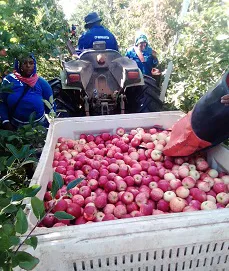 The new apple season has started in South Africa’s early apple regions. “With this heat driving the maturity very quickly, we are in full swing,” says Doug Osler, fourth generation farmer in Fouriesburg, eastern Free State, where potatoes, dry beans and maize are also grown.
The new apple season has started in South Africa’s early apple regions. “With this heat driving the maturity very quickly, we are in full swing,” says Doug Osler, fourth generation farmer in Fouriesburg, eastern Free State, where potatoes, dry beans and maize are also grown.
The apple harvest started last week, around seven days earlier than their longterm release date on Royal Gala.
At the start of the season they focus on the local market which is empty of new season apples.
“We are busy picking Royal Gala which make up about 35% of our total crop and we will pack it until week 8. We are fortunate with a decent crop, especially after a record production season last year,” he says.
“There is a good demand for fresh, new season apples on the local market.”
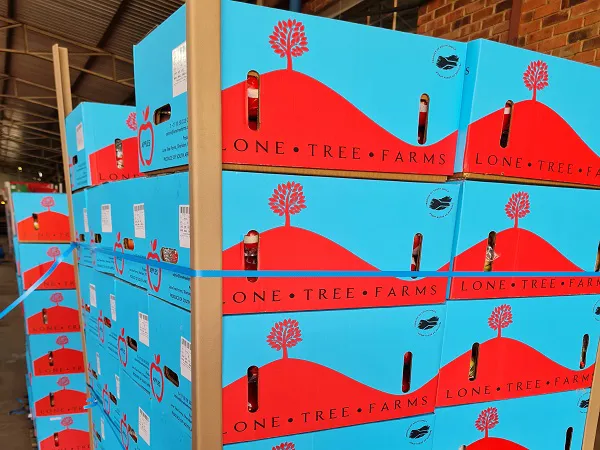 Lone Tree Farms in the eastern Free State is among South Africa's earliest apple growers
Lone Tree Farms in the eastern Free State is among South Africa's earliest apple growers
The Top Red/Starking harvest is next, picking from week 7, a cultivar that does particularly well on the local market.
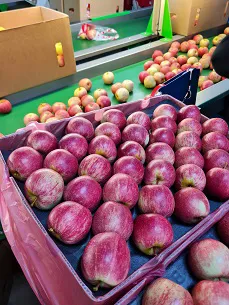 Growing interest from India
Growing interest from India
When apple volumes pick up, Lone Tree Farms supplies Cape Five and Freshgold export agents with Royal Gala, Top Red, Fuji, Granny Smith, African Carmine, Pink Lady and Cripps Red.
“We send on average about 30% of our crop to export markets in the UK, Middle East, Far East and Africa.”
He remarks that on the export front, there is a lot of interest from India.
New Gala strains
Doug continues: “New genetic strains of Gala, like Big Bucks and Bingo, are coming into decent production on higher intensity orchards of 2,500 trees per ha which is helping our total yield.”
The rain has been a challenge from a crop protection point of view but, he observes, with apples being above ground and on a permanently rooted structure, their apples have been in a much better position than some of their other crops like potatoes, beans, maize and wheat.
“Fortunately, we have escaped any major hail storms and the netting structure has provided the necessary cover (excuse the pun) for what we did have.”
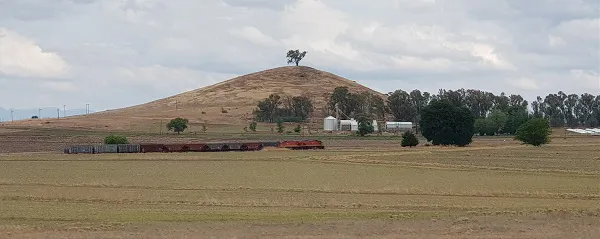 The farm is named after a solitary eucalyptus on a hill on the farm
The farm is named after a solitary eucalyptus on a hill on the farm
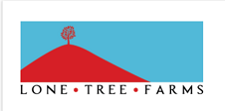 For more information:
For more information:
Doug Osler
Lone Tree Farms
Tel: +27 58 223 0751
Email: dco@lonetreefarms.co.za
